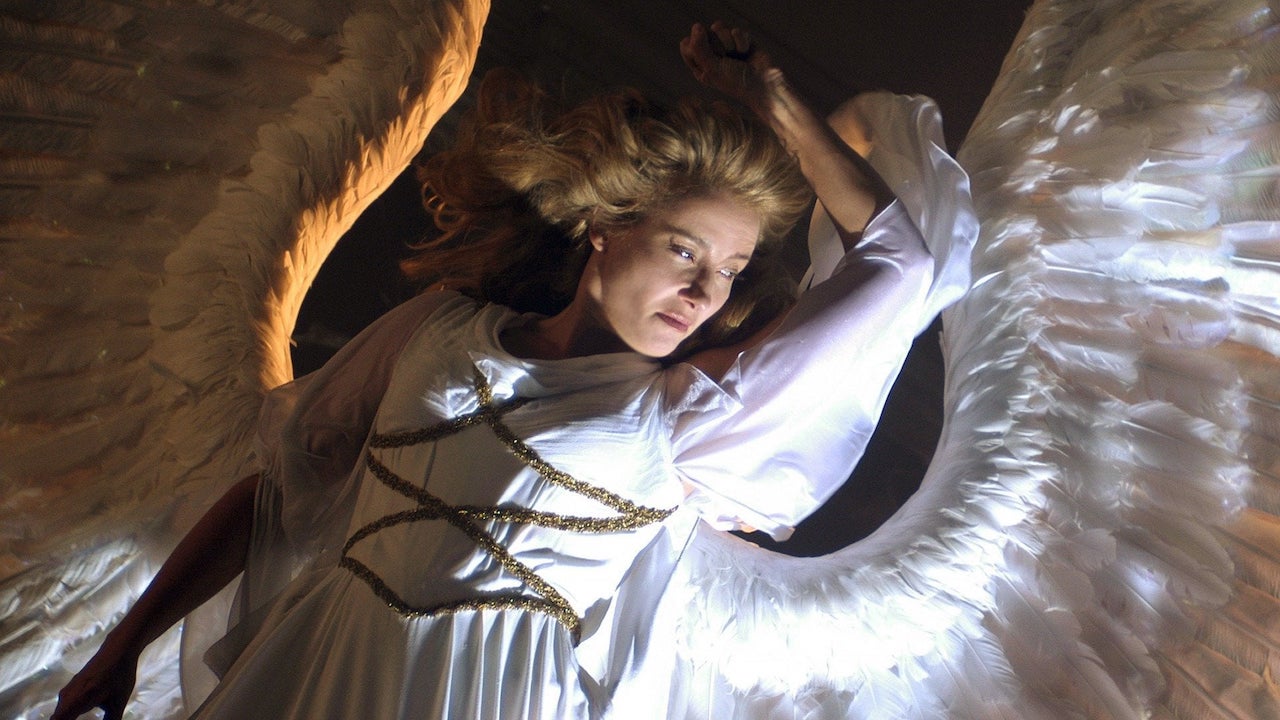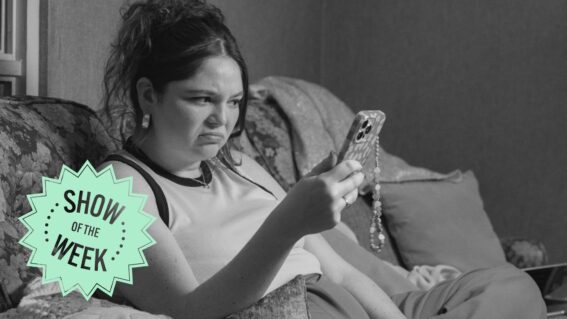Spotlight on Emma Thompson: she’s looked at life on screen from both sides now
The Dame makes us laugh, cry, and think with every gracious performance and script in which she’s involved.
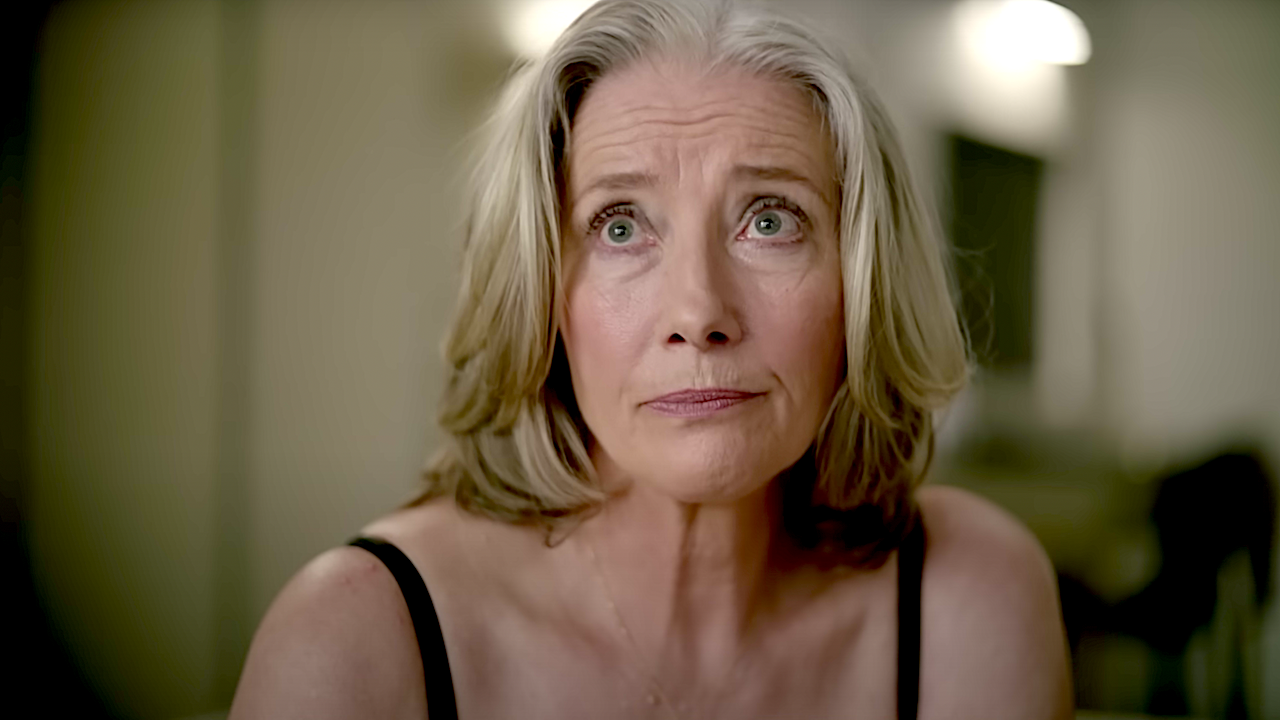
In the corny Christmas collage of Love Actually, there’s at least one scene that would make any Scrooge instantly melt into a soggy puddle: Emma Thompson’s private moment of listening to Joni Mitchell, allowing herself to cry over her husband’s infidelity. Hell, it’s enough to make me feel personally offended that that jerk Kenneth Branagh somehow got a screenwriting Oscar, too, 30 years after his wronged ex the Dame got hers.
The scene hurts so much because many of us see the actor and writer as a generous, maternal figure even beyond her prolific work on screen. She’s not afraid to speak her mind or boldly care for others, or to go broad and downright ugly when the role calls for it.
Sophie Hyde’s new rom-com Good Luck To You, Leo Grande requires Thompson to strip down in more ways than one by playing a sexually-repressed divorcee hiring a sex worker in order to get her first ever orgasm. I just know that she’ll bring boundless dignity, empathy, and laughs to the film, because I’ve seen the five pivotal performances below. You should check ’em out, too, after having another bedroom cry at that Love Actually scene real quick.
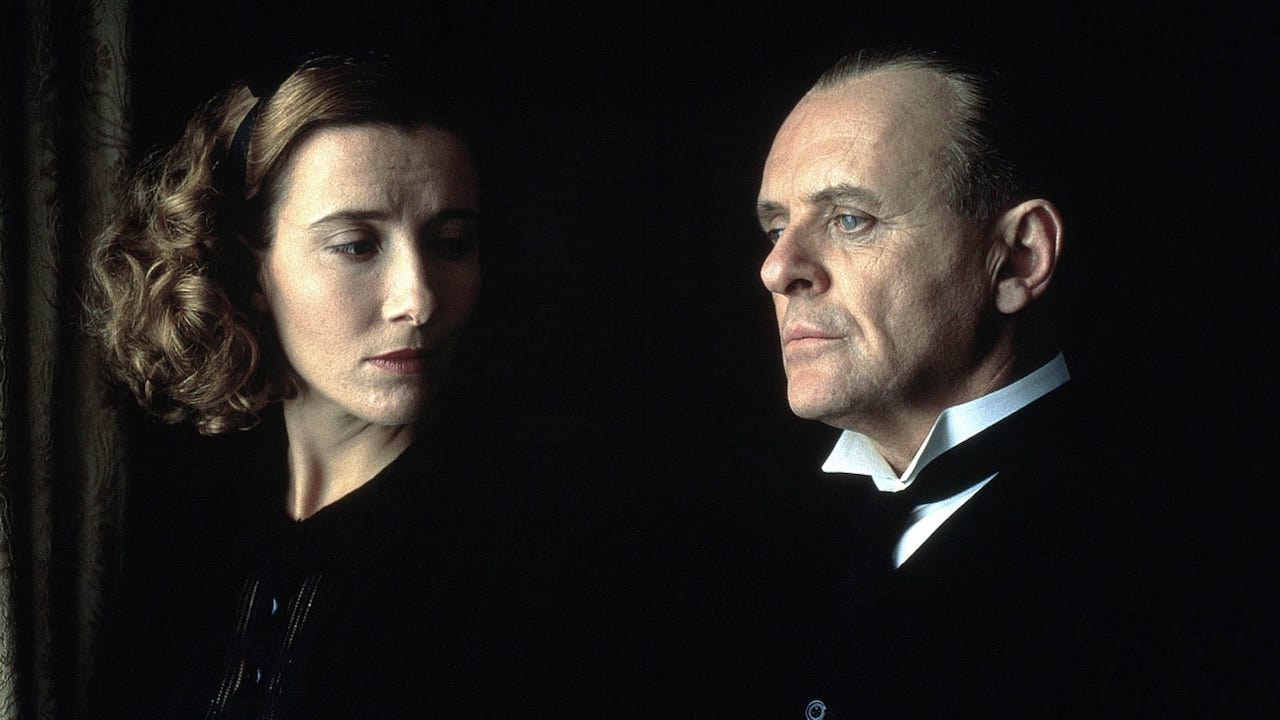
The Remains of the Day (1993)
As unlikely a couple though they may appear, Thompson and Anthony Hopkins are quietly devastating as the leads in this Merchant Ivory production. It’s based on the novel by Nobel-prize winning author Kazuo Ishiguro, with themes of national guilt and intolerance crystallised in refined, repressed style. Thompson and Hopkins are the servants of a wealthy Nazi sympathiser, unable to express their values due to their status, or their romantic feelings for one another due to his frigid self-esteem. For playing the more vocal housemaid Miss Kenton, Thompson got her second, very deserving Oscar nom after winning one for a previous Merchant Ivory collaboration, Howards End…
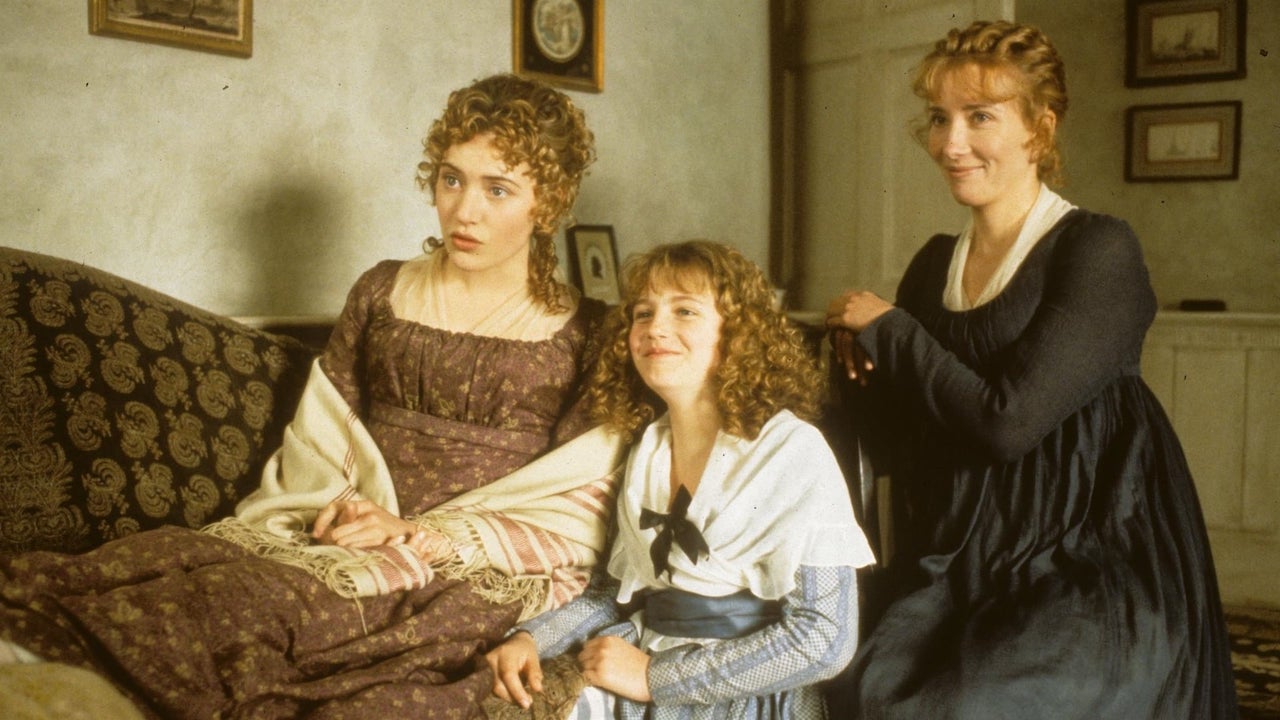
Sense and Sensibility (1995)
…and here’s the movie through which she made Oscars history, and not just in the Best Actress category. In fact, Thompson had to be cajoled into starring as the sensible Elinor Dashwood, after spending five years adapting Jane Austen’s romance into her very first screenplay. She would become the first person to have an Oscar in both writing and acting categories, whilst also meeting current husband Greg Wise on set (a good year for Dame Em, it seems). It’s hard to pick where her best work in this utterly delightful film lies—perhaps it’s in applying a modern female gaze to make Austen’s male characters more three-dimensional and swoon-worthy than ever.
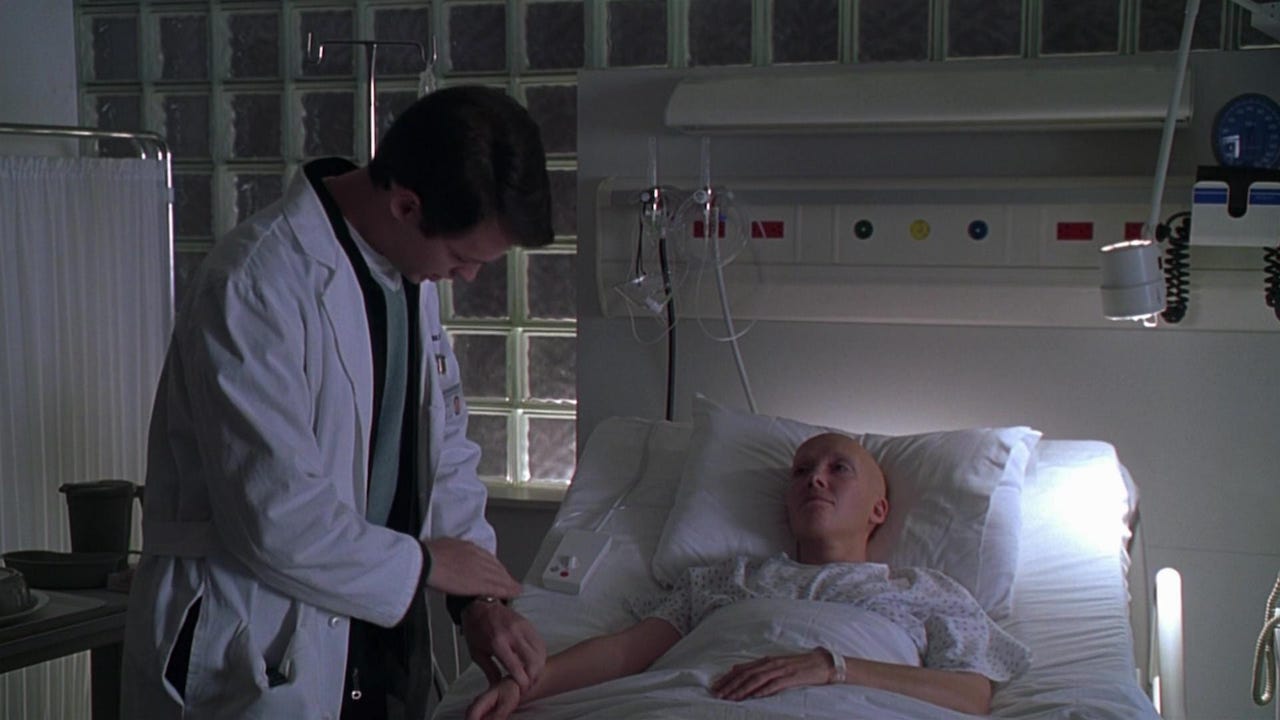
Wit (2001)
If there’s one thing Thompson and most of her characters can always count on, it’s this: their Wit. But what good is tenure and a brilliant mind when your body betrays you? Working with likeminded director Mike Nichols and again writing her own adaptation for the script, Thompson plays an English literature professor desperately trying to cherish her dignity while ovarian cancer takes everything else from her. Legendary critic Roger Ebert was unable to bring himself to rewatch Wit after his own diagnosis, despite considering it Thompson’s best performance, and I can’t blame him: the TV film is painfully acute.
Angels in America (2003)
As the divinely beautiful The Angel America, Thompson gives AIDS patient Prior Walter (Justin Kirk) a daunting prophecy for the new millennium. She also gives us heavenly humour, gravitas, and sheer theatre, in Nichols’ remarkable adaptation of the Tony Kushner stage phenomenon. Whether kissing Meryl Streep or facing off against Al Pacino as asshole Reaganite lawyer Roy Kohn, Thompson is uber-committed, bursting through the ceiling to begin most of her sentences with the declaration “I, I, I, I!” It’s a true come-to-Jesus role that should send you to your knees.
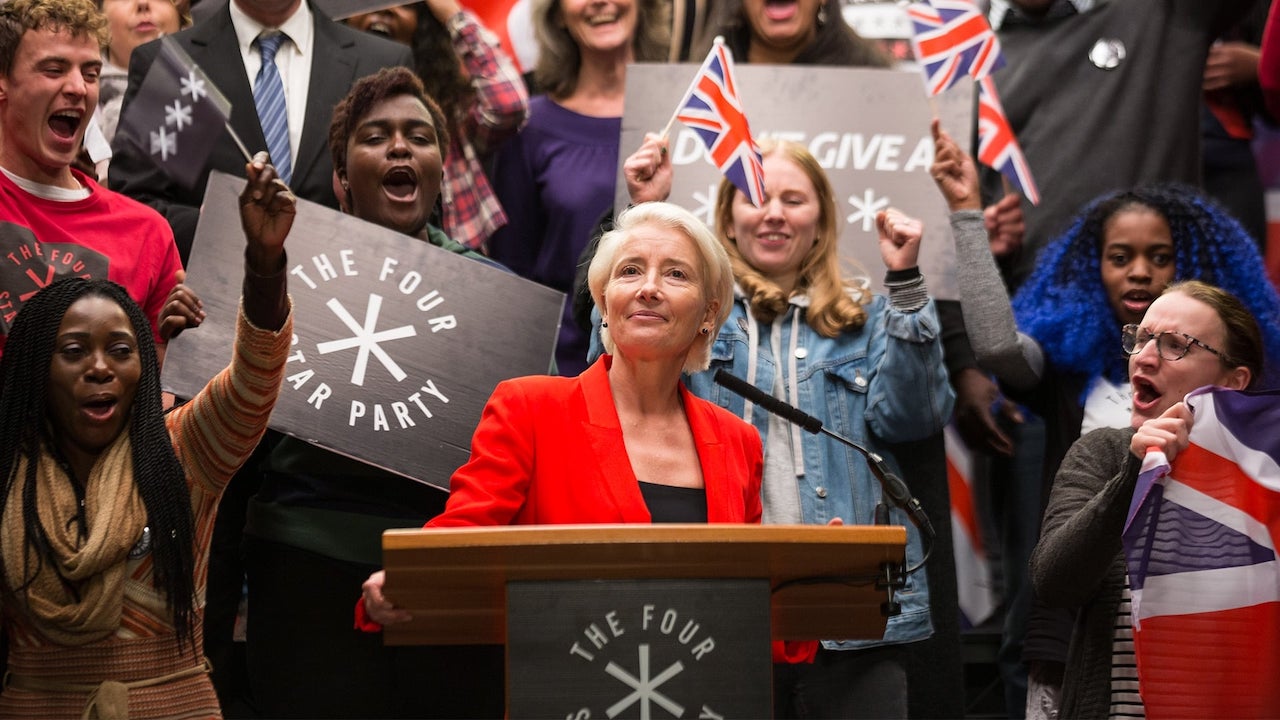
Years and Years (2019)
It’s pretty hard to watch Thompson as awful political caricature “Viv” Rook, primarily based upon Donald Trump, but it’s also a genius bit of casting. She’s played baddies before, like in Disney’s Cruella prequel, but here her charm is most cruelly subverted as she ascends from businesswoman who “tells it like it is”, to MP, to a PM who makes IQ testing mandatory for voters. Russell T Davies’ dystopian series jumps forward in the timeline of a struggling UK family with each episode, and Thompson’s corrosive fascism is the cause of all their misery. Shame, because I’d totally vote for the real Emma Thompson in any national election.









